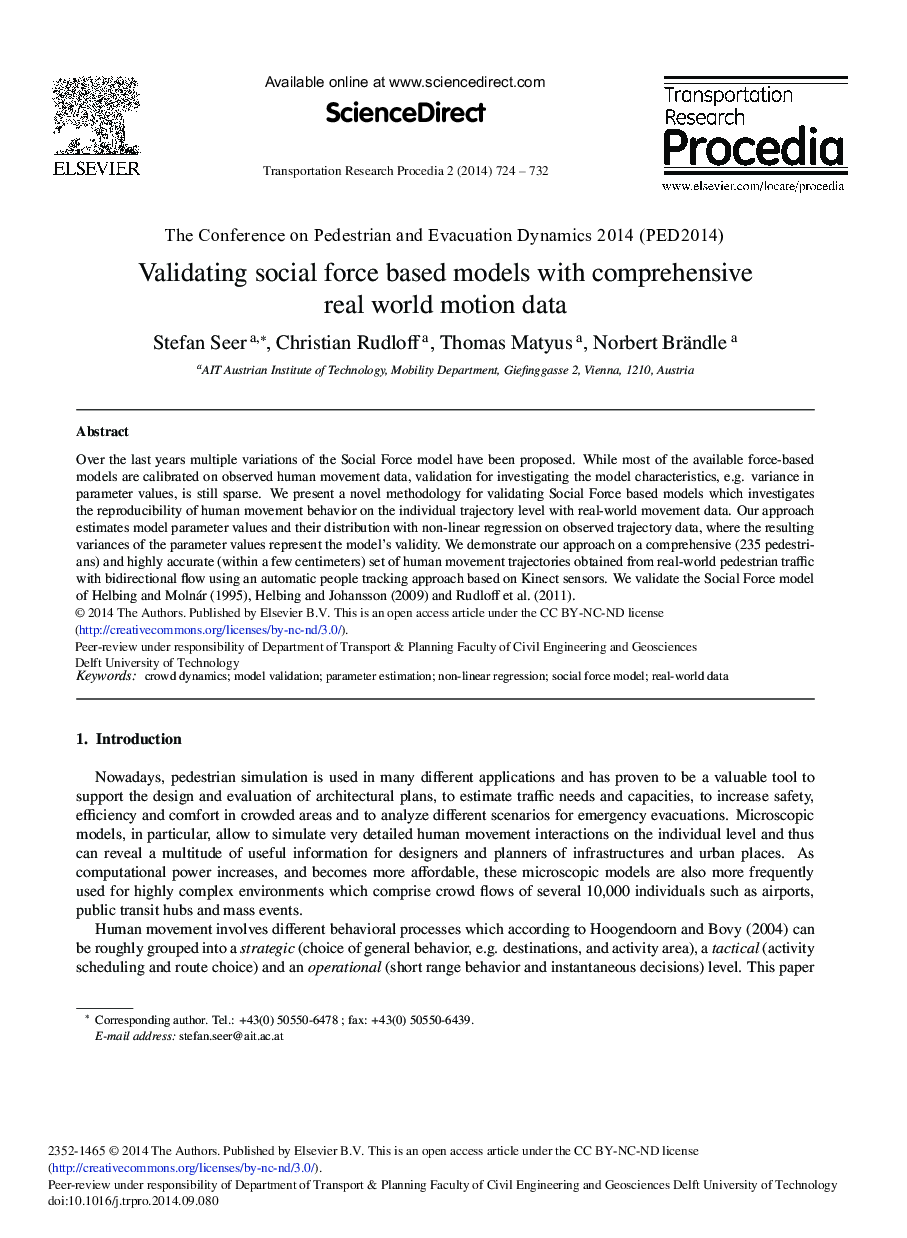| Article ID | Journal | Published Year | Pages | File Type |
|---|---|---|---|---|
| 1106753 | Transportation Research Procedia | 2014 | 9 Pages |
Over the last years multiple variations of the Social Force model have been proposed. While most of the available force-based models are calibrated on observed human movement data, validation for investigating the model characteristics, e.g. variance in parameter values, is still sparse. We present a novel methodology for validating Social Force based models which investigates the reproducibility of human movement behavior on the individual trajectory level with real-world movement data. Our approach estimates model parameter values and their distribution with non-linear regression on observed trajectory data, where the resulting variances of the parameter values represent the model's validity. We demonstrate our approach on a comprehensive (235 pedestrians) and highly accurate (within a few centimeters) set of human movement trajectories obtained from real-world pedestrian traffic with bidirectional flow using an automatic people tracking approach based on Kinect sensors. We validate the Social Force model of Helbing and Molnár (1995), , Helbing and Johansson (2009), and Rudloff et al. (2011).
